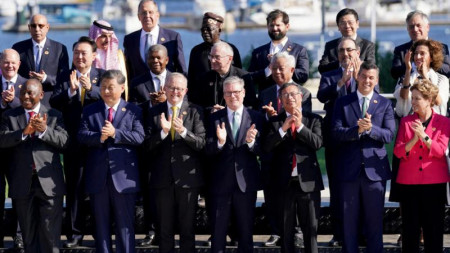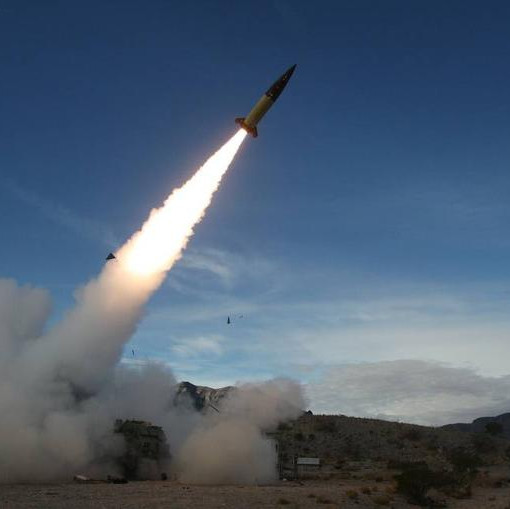
"Weaker support for Ukraine," as foreign media noted, has been a truly remarkable outcome of the G20 summit in Rio.
The forum participants signed a joint declaration softening the previously agreed criticism of Russia's actions in Ukraine to a minimum and only containing a general mention of "human suffering caused by the thousand-day conflict in Ukraine." For the second successive year, G20 leaders have refused to directly condemn Moscow in this regard.
This comes amid increased pressure on Zelensky from some of his Western allies into considering peace talks with Russia. In this case, most G20 leaders have, in a sense, integrated themselves into US President-elect Donald Trump’s agenda as he declares the need for a peaceful dialogue on Ukraine. Trump is known to have pledged an end to the war before he takes office, which is set to take place on January 20, 2025.
Without specifying Trump's true intentions or terms of a likely peaceful dialogue the future US leader allegedly intends to engage Moscow and Kiev in, countries of the Global South represented at the G20 summit have actually taken advantage of his rhetoric’s positive vector. They de facto used Trump's apparent controversies with Western warmongers to disrupt the anti-Russian sentiment of the draft final statement.
The summit saw some European delegations insist on tougher language condemning Russia, particularly its massive missile strike launched last Sunday on the Ukrainian critical infrastructure servicing the Armed Forces of Ukraine. Their demands to focus the entire G20 summit agenda on "Russian aggression" met resistance with other member states of this informal group. As a result, Western countries were outnumbered, giving up and abandoning their demand over fears that it could undermine the process of adopting a joint statement.
The Global South’s opinion has turned the scales in G20, which is rather symptomatic. On the one hand, this can be regarded as a Western intent to show loyalty to the new US President. But, on the other hand, the main thing is that the global majority has de facto voted against further Western assistance to Kiev, without which the war in Ukraine would have long ago come to its logical end, i.e. the Kiev regime’s collapse.
Western media are seeking to present the case in such a way that the G20 summit in Rio mainly focused on changing the world order owing to the return to power of US President-elect Donald Trump. An exaggeration as it is. The key figure in Rio was Chinese leader Xi Jinping promoting his Belt and Road Initiative.
One might assume that Biden was second after him, though it is yet another exaggeration. They have deemed him as a "lame duck." At least this is how The New York Times dubbed him when commenting on Biden's visit to Latin America. Moreover, no one even waited for him to make a general photo shoot. And he is eventually not there among other summit attendants, which is also symbolic.
The G20 meeting in Rio took place right after the Asia-Pacific Economic Cooperation (APEC) summit in Lima, Peru. China was especially noticeable at both venues, with its economic initiatives having nicely diluted the typical low-level discussions.
In Peru, literally before Biden's very eyes Chinese leader Xi Jinping opened the largest Latin American marine mega-port built with Chinese money. This refers to Chancay and its ability to change the entire logistics system of both Latin America and the Asia-Pacific region. It will be a whole water and land logistics hub as part of China’s Belt and Road Initiative to be used by all the Latin American countries in their export and import operations with China and Asia in general.
This event provided an excellent backdrop for Xi Jinping's speech at the G20 summit. He outlined an impressive set of China's global development actions in terms of finance scale.
The Chinese proposed "joint efforts to continue high-quality joint construction" of infrastructure within the BRI framework. According to Xi Jinping, China would allocate some $107.8n for this purpose. To understand the scale of China's global trade and economic expansion, let’s note that the Chancay mega-port cost China a mere $1.3n as it is going to solve all its logistic issues in Latin America.
Apart from that, Xi Jinping announced China's intent to implement the Global Development Initiative. He pointed out that, based on over 1,100 development projects already implemented by his country, China "will make sure the construction of a Global South research center, keep supporting developing countries, and deepen practical cooperation in areas such as poverty reduction, food security and digital economy."
Another highlight was Xi Jinping's suggested partnership program for China and Africa to jointly develop numerous socio-economic ties over the next three years. In this regard, Xi announced the allocation of $49.7bn.
On we go. Along with Brazil, South Africa and the African Union, China is proposing "an Initiative on International Cooperation in Open Science to help the Global South gain better access to global advances in science, technology and innovation."
And finally, as if in contrast to the Trump-announced 60 percent tariff increase plan covering all the Chinese goods, Xi Jinping is going to unilaterally introduce "a zero-tariff regime for 98 percent of products from the list of customs and tariff nomenclature produced in 16 least developed countries." He said that henceforth until 2030, China's total imports from developing countries are expected to exceed $8 trillion. This is an unprecedented tariff-free support for developing countries, given China's enormous market.
Summarizing China's benefit at the G20 summit, one may say that its incredible generosity similar to throwing around money lets the country set itself against the United States and the West, which, on the contrary, have been demonstrating their ostensible superiority, exceptional disregard for everyone else’s interests, an undisguised desire to dominate and seek monetary gains alone.









